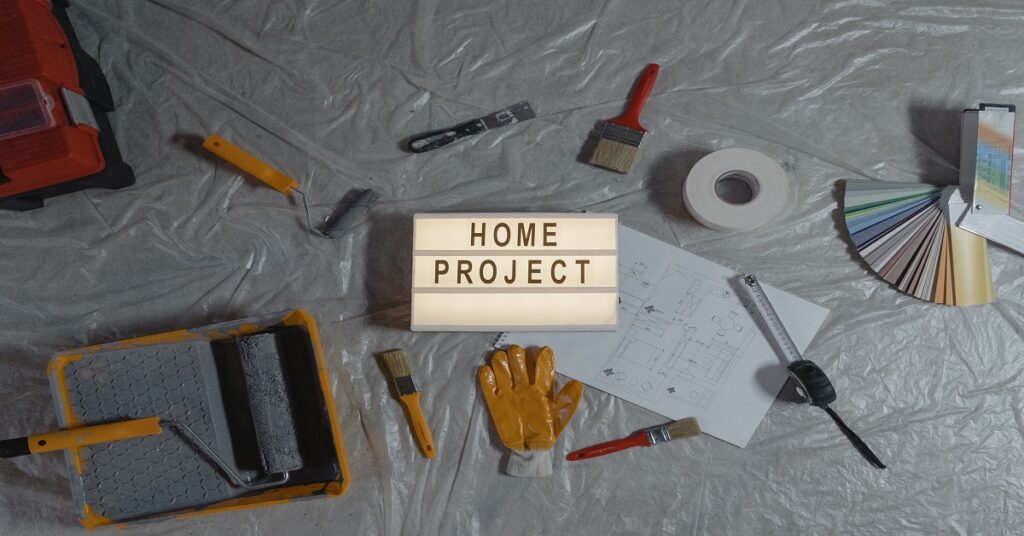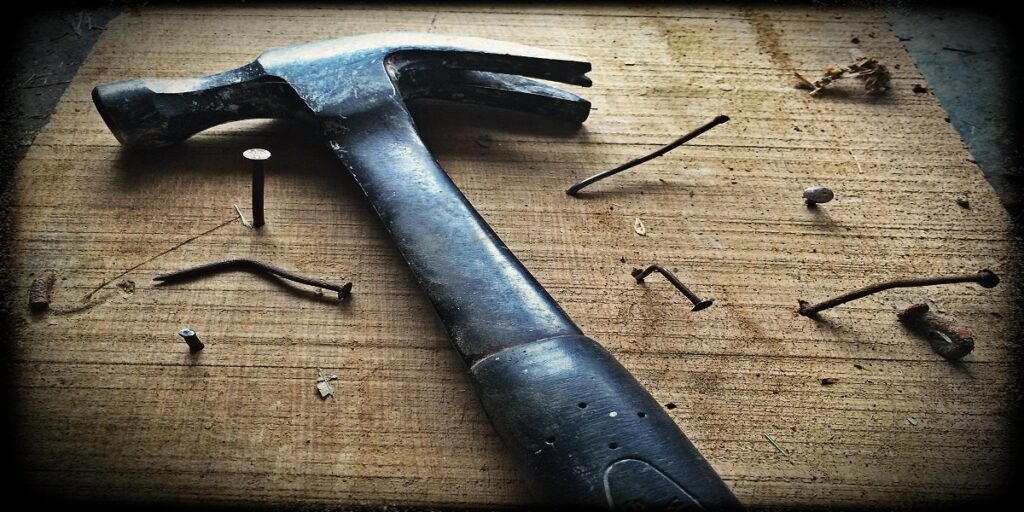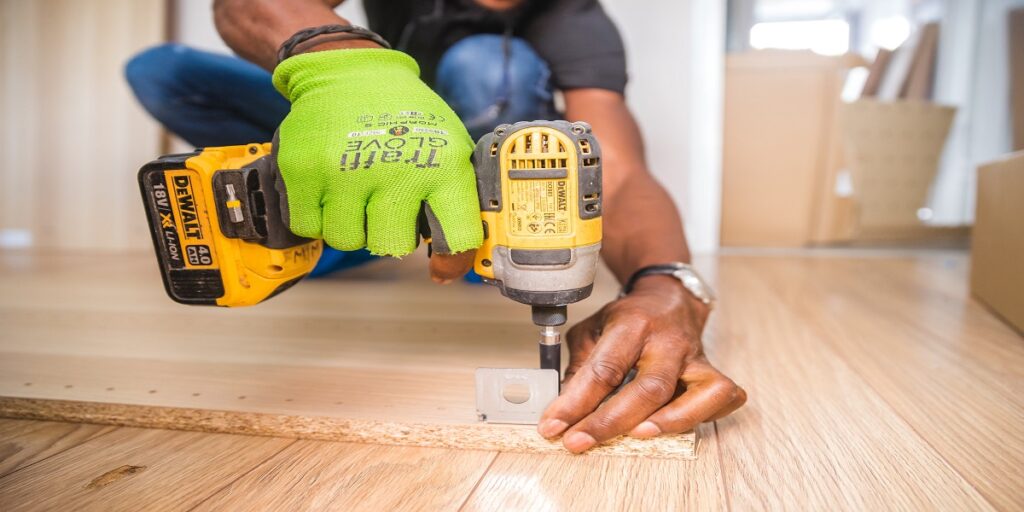Sweat Equity, Can It Make You More Money on Your Rental Property?

Sweat equity is a term that is commonly heard amongst real estate investors with their rental properties. It is a very simple concept. Sweat equity is forcing appreciation of your home value, thereby increasing the equity, through your manual labor, or sweat.
My wife and I did this with our most recent rental property.
One thing to understand is that you should not let the timeframe worry you. If you are really on a time crunch or you do not have professional skills with rehabbing or both, you should look into hiring someone. There are multiple shows on HGTV that outline failures that inexperienced homeowners faced when taking on a project way out of their comfort zone or knowledge base.
One other thing to consider is that it can be dangerous. What if you need to handle a jackhammer but have no experience with that? What if you do not realize which size to get and the machine hippity-hops right into your feet while you are trying to control it.
What if you are working with new appliances and you break a gas line? What if you are trying to work with a new plumbing project and break a water line before you have taken the time to note where the main water shutoff valve is, and if it is in good condition (sometimes they can corrode over time and be very difficult to manage in an emergency).
I am not saying NOT to attempt a rehab ever. What I am saying is that you make sure that you have a timeline for it. I believe anyone can do anything they want, ever, in their entire lives, like, seriously. BUT, you need to have enough time. The difference between you and a professional is that they have trained and failed to the point where their project will take them a week while yours may take 6 months, water damage, a blown-up kitchen, and a “holey” foot after a jackhammer accident, and you still probably wouldn’t be complete. “Mr. Mike Holmes, could you help us please?” while your adorable poodle mix is gnawing at the appetizing cast on your foot. Can you blame her?

Drum Roll, Please
Now that I have thoroughly prepared you for the possibility of using sweat equity to your advantage, I will show you a personal example.
My wife and I bought our last house in 2018. It was a townhouse about a mile away from the beach in Neptune Beach, Florida, just east of Jacksonville.
It was a great area, obviously, but we bought it with the knowledge that it was not going to be our forever home and that one day we would either rent it out or sell it.
The asking price was $270,000. This was the problem: There was no way I was willing to pay $270,000 for this house.
You might be asking, “but Kevin, if it was in a great area then why did you not think it was worth it?”
Because no one else thought it was worth it either. Why? Because it was sitting on the market for over two months.
After we entered the house, we saw that everything was original, over 30 years old, and not well taken care of either. The carpet was a light brown? Or maybe a dirty tan? I’m not sure, I did not want to dwell on the subject. The walls were a similar dirty tan, which my wife absolutely despised. There was damage to the walls, and some of the lights were not working.
The biggest problem was the master bathroom. Not only did it have the original vanity and countertops but there was also really outdated wallpaper (What?!, I’m not even sure this was popular even 30 years ago!)
The worst was the shower. Was it outdated as well? Well, yes. Was it at least a little better taken care of compared to the rest of the house? Oh, not at all. Well then, what was the problem? The main problem was that the ENTIRE WALL in the bathroom was a mirror and it was slowly rotting from the edges and working its way in.
Have you ever seen a mirror truly start to rot? You see the mold creeping in from the edges but it doesn’t matter how many bottles of bathroom cleaner and bleach you go through you still can’t get it clean? Even though it’s right there! It’s like a window into the soul of the mirror gazing as you’re witnessing its last moments of life but the window is the barrier. No matter how courageous or intrepid you may be, nothing can penetrate that mirror to save its diminishing soul (kind of ironic considering it was the penetration of a combination of water and nightmares that caused the damage in the first place).
It was all very insidious, I’m sure. Just growing and festering for more than 30 years since the property had been built.
Alas, enter your intrepid homebuyers, my wife, and I.
We loved the location, and we had already figured out that a scary house is not a dead-end but a great opportunity.
We went to our real estate sales associate and we said we were interested. He asked, “O,k so you’re ok with 270?”
My wife and I looked at each, and then back at him. “Not a chance.”
Our sales guy just laughed and understood completely. We told him that we wanted to bring it down to $230,000 because of all of the work that we would have to put into it. He understood our reasoning and did as any good real estate sales associate would do: He submitted the offer.
Well, needless to say, the owner was not happy about it. She felt that the market dictated that her home was valued at $270,000 so she should get $270,000.
Well, that’s not how this works, Christine. By the way, the “whiner seller” lady’s name was Christine.

More on Christine…
You see, your property might be worth that but it also depends on how your property compares to the rest of the neighborhood.
You’re right that some things are taken into account when appraising a property like the type of countertops and flooring, in addition to how many beds and baths there are, but you would be surprised how little these things can make a difference. Also, this was the most out-of-date and unkempt property on the block.
There were properties down the street that had updated their bathrooms and kitchens. There were granite and quartz countertops, vinyl plank flooring, and updated appliances. This person did absolutely nothing to keep up with the property.
So, even though Zillow might be telling you that your house is worth a certain amount, that does not mean that’s what it is worth when there are nicer homes in the area because of better upkeep and rehabbing.
Another very important thing to consider that I ALWAYS remind people is that a home’s value is not a sticker on a shelf at the store. That’s not what the house costs. That is how much your house is valued on the market compared to other properties, otherwise known as comparables or “comps”.
Furthermore, a house is only worth as much as what other people are willing to pay for it.
I am going to reiterate this because this is the very essence of economics and by understanding this you may be on your way to a paradigm shift.
A house is only worth as much as someone is WILLING TO PAY FOR IT.
Have you ever heard of houses where terrible things had happened and the value of the home plummets? Why is that? The structure is sound, it was updated just before said calamity struck the home, it has quartz countertops!
This home compared to other homes say that it SHOULD be worth “X” amount, but it still is not selling.
It is because a house is only worth as much as someone is willing to pay for it.
Contradictorily to this example, a person may come across a home in the perfect location. The exact spot where they want to settle down. Maybe it’s next to a certain beach that they frequent or on a mountain ridge just up the river of a lake.
This home may be worth a certain amount, but the future buyers may pay a lot more because they can not stand the thought of losing this house and their opportunity to make this their home.
So, although some algorithms stated that the property was worth $270,000, I was not willing to pay that, thus, not making the property worth much less.
After we submitted our offer of $230,000, and after some back and forth because they thought we were being unreasonable (No we weren’t otherwise it would have been sold 2 months ago), she countered at $239,000.
There was a lot in me that made me want to counter back down to $235,000, but my wife really loved the area because it was a short commute to her work and we both did very much see the potential in it.
We accepted at $239,000 and got to work.

The Saga Continues
Over the next three years, we put over $50,000 worth of work into it. We painted the whole house, replaced the carpet, replaced all five of the ceiling fans in the house (five ceiling fans and there were four different types!), replaced the water heater, had pros come in and replace the cabinet doors and hardware and the countertops in the kitchen and jackhammered a lot of concrete on the outside patio because some unstable amateurs apparently thought that adding more concrete to make the patio bigger was a good idea even though the design was all kinds of weird.
We put a lot of work into the house and the last thing we did just before renting it out was hired contractors to completely rehab the master bathroom down to the studs.
It took a while but now that property is gorgeous and we miss it because we were able to make it beautiful our way.
We bought it for $245,000 (after closing costs) and now it is worth just a little over $430,000. If we had not put the work in, there is no way we would be able to command that high of a value because nobody would pay for it.
Our neighbor next door was in a similar situation with the previous homeowner neglecting it but someone paid $200,000 for it when it had comps for $300,000! He took a whole $100,000 less than what he could have gotten because it was in such a state of disrepair. The new buyer came in, rehabbed the whole property, and sold it for $330,000 about 8 months later.
We still own the property and are currently renting it out for $2,200 and our debt service on it is $1,400 so we’re happy with it for now. We intend on selling it soon and taking the profits and either buying another multi-family property or investing in a commercial real estate property with an old borrower of mine. I will keep you updated.
Closing Remarks
I hope this is a good explanation of what sweat equity is and how it can pay off in the end. It is the reason why flippers make money. They take properties that cannot sell and turn them into properties that end up in bidding wars because of how beautiful they are. That’s why there is a market for flippers.
Real estate investors and flippers do provide a service because if it wasn’t for them, our real estate markets would not improve. There would be a stagnation in the improvement of our communities and none of us would live in anything nice unless it was brand new.
Investors and flippers come in and they take an underappreciated house and they make it one that a family can appreciate.
Some people complain about the prices, and I get that, I really do. Just remember one thing: houses are only worth as much as someone is willing to pay for them.
Thank you,



